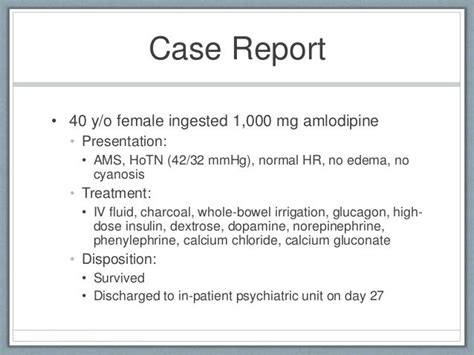Intro
Amlodipine is a medication that has been widely used for decades to treat various cardiovascular conditions, particularly high blood pressure and angina. As one of the most prescribed medications globally, it's essential to understand what amlodipine does, its benefits, and potential side effects. In this article, we will delve into the world of amlodipine, exploring its mechanisms, uses, and importance in maintaining cardiovascular health.
Amlodipine belongs to a class of medications known as calcium channel blockers. These medications work by inhibiting the influx of calcium ions into the smooth muscle cells of the heart and blood vessels. By doing so, amlodipine helps to relax the muscles, reducing the heart's workload and lowering blood pressure. This mechanism is crucial in treating conditions such as hypertension, where the blood vessels are constricted, and the heart has to work harder to pump blood.
The effects of amlodipine are not limited to lowering blood pressure. It also helps to increase blood flow to the heart, reducing the risk of chest pain (angina) and other cardiovascular events. Amlodipine's ability to improve blood flow makes it an effective treatment for conditions such as coronary artery disease, where the blood vessels that supply the heart are narrowed or blocked.
Amlodipine Mechanism of Action

Amlodipine's mechanism of action is complex, involving multiple pathways and receptors. The medication works by binding to L-type calcium channels in the heart and blood vessels, reducing the influx of calcium ions. This decrease in calcium ions leads to a relaxation of the smooth muscle cells, resulting in vasodilation (widening of the blood vessels) and a subsequent decrease in blood pressure.
In addition to its effects on the cardiovascular system, amlodipine has been shown to have antioxidant and anti-inflammatory properties. These properties may help to reduce the risk of cardiovascular events, such as heart attacks and strokes, by protecting the blood vessels from damage.
Amlodipine Benefits
The benefits of amlodipine are numerous, making it a popular choice for treating various cardiovascular conditions. Some of the key benefits include: * Lowering blood pressure: Amlodipine helps to reduce blood pressure, reducing the risk of cardiovascular events such as heart attacks and strokes. * Reducing angina: Amlodipine increases blood flow to the heart, reducing the risk of chest pain and other cardiovascular events. * Improving blood flow: Amlodipine helps to improve blood flow to the heart and other organs, reducing the risk of cardiovascular disease. * Anti-inflammatory effects: Amlodipine has anti-inflammatory properties, which may help to reduce the risk of cardiovascular events.Amlodipine Uses

Amlodipine is used to treat a variety of cardiovascular conditions, including:
- High blood pressure (hypertension)
- Angina (chest pain)
- Coronary artery disease
- Heart failure
- Peripheral artery disease
Amlodipine may also be used in combination with other medications to treat conditions such as high cholesterol and diabetes.
Amlodipine Side Effects
While amlodipine is generally well-tolerated, it can cause side effects in some individuals. Common side effects include: * Dizziness * Headache * Fatigue * Nausea * Edema (swelling of the feet, ankles, and hands)In rare cases, amlodipine can cause more serious side effects, such as:
- Low blood pressure
- Increased heart rate
- Allergic reactions
Amlodipine Dosage

The dosage of amlodipine varies depending on the condition being treated and the individual's response to the medication. Typical dosages range from 2.5mg to 10mg per day, taken orally.
It's essential to follow the prescribed dosage and schedule, as taking too much or too little amlodipine can affect its efficacy and increase the risk of side effects.
Amlodipine Interactions
Amlodipine can interact with other medications, including: * Beta blockers * ACE inhibitors * Diuretics * StatinsThese interactions can increase the risk of side effects or reduce the efficacy of amlodipine. It's essential to inform your doctor about any medications you're taking before starting amlodipine.
Amlodipine and Pregnancy

Amlodipine is generally not recommended during pregnancy, as it can cause fetal harm. However, in some cases, the benefits of amlodipine may outweigh the risks. It's essential to discuss the potential risks and benefits with your doctor before taking amlodipine during pregnancy.
Amlodipine and Breastfeeding
Amlodipine is excreted in breast milk, and its effects on the nursing infant are unknown. As a precaution, it's recommended to avoid breastfeeding while taking amlodipine.Amlodipine Overdose

An overdose of amlodipine can cause severe side effects, including:
- Low blood pressure
- Increased heart rate
- Respiratory depression
- Coma
If you suspect an overdose, seek medical attention immediately.
Amlodipine Warnings
Amlodipine can cause allergic reactions, including anaphylaxis. If you experience any symptoms of an allergic reaction, such as hives, itching, or difficulty breathing, seek medical attention immediately.Amlodipine Alternatives

If you're unable to take amlodipine or experience severe side effects, there are alternative medications available. These include:
- Other calcium channel blockers, such as verapamil or diltiazem
- Beta blockers, such as metoprolol or atenolol
- ACE inhibitors, such as lisinopril or enalapril
It's essential to discuss the potential benefits and risks of alternative medications with your doctor before switching.
Amlodipine and Lifestyle Changes
While amlodipine can help to manage cardiovascular conditions, lifestyle changes can also play a crucial role in maintaining cardiovascular health. These include: * Quitting smoking * Exercising regularly * Eating a healthy diet * Reducing stress * Getting enough sleepBy combining amlodipine with lifestyle changes, you can reduce the risk of cardiovascular events and improve overall health.
What is amlodipine used for?
+Amlodipine is used to treat high blood pressure, angina, and other cardiovascular conditions.
How does amlodipine work?
+Amlodipine works by blocking the influx of calcium ions into the smooth muscle cells of the heart and blood vessels, reducing blood pressure and increasing blood flow.
What are the side effects of amlodipine?
+Common side effects of amlodipine include dizziness, headache, fatigue, nausea, and edema. Rare side effects can include low blood pressure, increased heart rate, and allergic reactions.
In conclusion, amlodipine is a powerful medication that can help to manage various cardiovascular conditions. By understanding its mechanisms, benefits, and potential side effects, you can make informed decisions about your treatment plan. Remember to always follow the prescribed dosage and schedule, and discuss any concerns or questions with your doctor. With the right treatment and lifestyle changes, you can reduce the risk of cardiovascular events and improve overall health. We invite you to share your thoughts and experiences with amlodipine in the comments below, and don't forget to share this article with anyone who may benefit from this valuable information.
